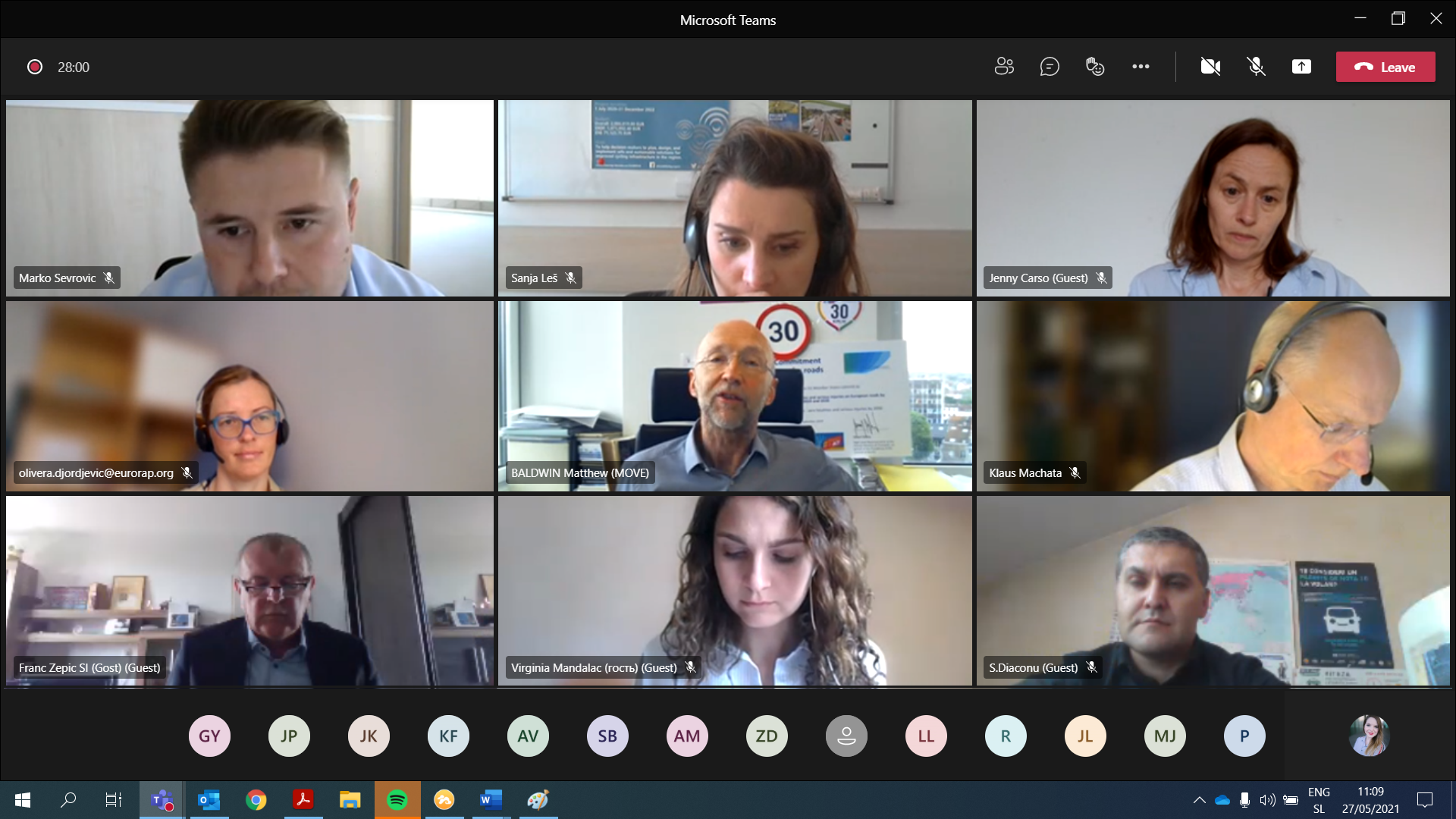RADAR - ROAD SAFETY EXPERT GROUP MEETING ON TRANSPORT SAFETY AND COVID-19: Build forward better
02-06-2021
On May 27, 2021, the RADAR project team implemented the fifth Road Safety Expert Group (RSEG) meeting on Thematic Area 5 – Transport Safety and COVID-19.

More than 40 road safety experts and representatives of the road infrastructure safety sector that are part of the RADAR project Road Safety Expert Group and other transport stakeholders actively participated in the last RSEG meeting. Through the RSEG meetings, the RADAR project offers opportunities for converging policies in a transnational strategy, reinforcing the need for harmonisation at the EU level.
Matthew Baldwin, Department of Mobility and Transport, was representing EU Commission. He opened the meeting with a clear message on transport safety in the post-covid era: “We are all very aware of covid-19 implications on road safety. It slowed down our momentum. But we have to get back on the horse with a strong message to communicate. The beauty is that we have the vaccine, but we must make sure this vaccine is successfully implemented.” Mr. Baldwin added on the prepared report on TA5: “The EU Commission fully supports your focus [RSEG report on Thematic Area 5] on the Safe System Approach, speed, and speed management. We strongly agree that EU countries of all sizes should apply sustainable mobility plans, but also make sure road safety is a big part of that and with that make sure that vulnerable road users are also included. In general, it is a very good instrument to improve road infrastructure safety not just in Danube area countries but in all European countries.”
The work on RADAR so far was focused on four thematic areas which were considered to be the most relevant building blocks of future strategic management of infrastructure road safety in the Danube Area. Experts gathered around RSEG have provided valuable inputs to PPs and ASPs in drafting the layout of DIRSIS (Danube Infrastructure Road Safety Improvement Strategy) and DIRSIAP (Danube Infrastructure Road Safety Improvement Action Plans) that were supposed to be presented and uptaken by the national stakeholders. In order to ensure the up-to-date implementability of the recommendations set out in the DIRSIS and DIRSIAP, the recommendations must be reviewed taking into account the new situation which is a direct result of the covid-19 pandemic and amended RISM Directive requirements (Thematic Area 6).
There is a reasonable threat that investments in road infrastructure safety will be largely affected by the covid-19 and will shrink already small budgets dedicated to road infrastructure safety. Improving road infrastructure safety in the Danube area in this critical time requires action to demonstrate by facts the real impact of the pandemic outbreak on road safety. RSEG advocacy group of road safety experts agreed and added that we need to learn from it to raise awareness on the risk of neglecting or minimising future spending on infrastructure safety. Due to the Covid-19 situation mobility patterns have been indeed transformed and changed completely. Because “there will be future pandemics. And we will need to be able to recover by learning from them,” concluded Jonathon Passmore, Violence and Injury Prevention, World Health Organisation.
Immediate actions on awareness-raising and exchange of experience will influence the likelihood of less severe consequences of COVID-19 on road safety in the Danube region in the long run. Pedro Homem de Gouveia, Coordinator for Road Safety, Security, Governance and Integration, Polis Network emphasises: “We need to discuss the symptoms, not the causes. What are the real challenges of road safety? Who is supposed to apply the vaccine? Capacity building and training professionals – vision zero is not about magical rethinking, it requires tough choices.”
Mr. Passmore, WHO explained that we need to “build forward better. Rather than returning to what it was, we need to use this opportunity to go above and beyond.” We need to take this opportunity to go not only focus on road infrastructure but on fines’ recoveries and other forms of penalties, investment in the installation of traffic signals as well as on regulations on road safety. “If we apply the shared responsibility principles the way it was demonstrated during the pandemic, we can certainly improve global traffic,” agreed and concluded George Yannis, Traffic Safety and Management, National Technical University of Athens.
Find more information on how covid-19 has affected road safety here.


